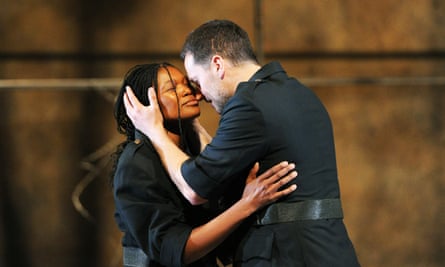Mozart’s work list is littered with incomplete projects, from pieces that are regularly performed in their unfinished state, such as the C minor Mass and the Requiem, to works for which the surviving material is too sketchy or skeletal to be really meaningful, including projected stage works such as Lo Sposo Deluso and L’Oca del Cairo. What there is of Zaide is more substantial. In 1779, Mozart started work on a Singspiel that, like Die Entführung aus dem Serail (which he began the following year), was to be set in a seraglio. By the time he had completed two of the projected three acts, though, not only had the prospects of performance evaporated, but he had received a commission from Munich for what would become his first unqualified operatic masterpiece, Idomeneo. The Singspiel was abandoned, without even a title; it became known as Zaide – after the leading character – when the music was first performed in the middle of the 19th century.

There’s no overture, and no text for the spoken dialogue, but there are 15 numbers, some 75 minutes of music, including ensembles, several arias and two remarkable melodramas. Some are strikingly beautiful, and there has been no shortage of attempts to create a convincing dramatic framework for the music. Perhaps the best known is the novelist Italo Calvino’s version for the Batignano festival in 1980. More recently, the director Peter Sellars has turned Zaide into a polemic against slavery.
Six years ago, Ian Page and his Classical Opera company came up with their own three-act version, involving a specially comissioned new English text from Michael Symmons Roberts, and a score that incorporated music from other Mozartean sources.

Apart from the inclusion of an intermezzo from Mozart’s incidental music to the play Thamos, King of Egypt as a short overture, Classical Opera’s recording sticks to what Mozart intended for the opera, and retains the original German text. As Zaide, Sophie Bevan sings the score’s stand-out number, the aria Ruhe Sanft, and two other arias (though she does sound under pressure in the last of them), as well as the strikingly beautiful duet Meine Seele Hüpft vor Freuden with the tenor Allan Clayton, who takes the role of Gomatz, alongside Jacques Imbrailo as a suave Allazim. Darren Jeffery is a surprisingly light-toned Osmin, the overseer of Sultan Soliman’s slaves, but unlike the Osmin in Entführung, this Osmin is not a buffo character. As the starkly tragic quartet that ends the second act shows, had Mozart finished it, Zaide would not have been a comic portrayal of harem life, but something much more searching and deeply serious.

Comments (…)
Sign in or create your Guardian account to join the discussion